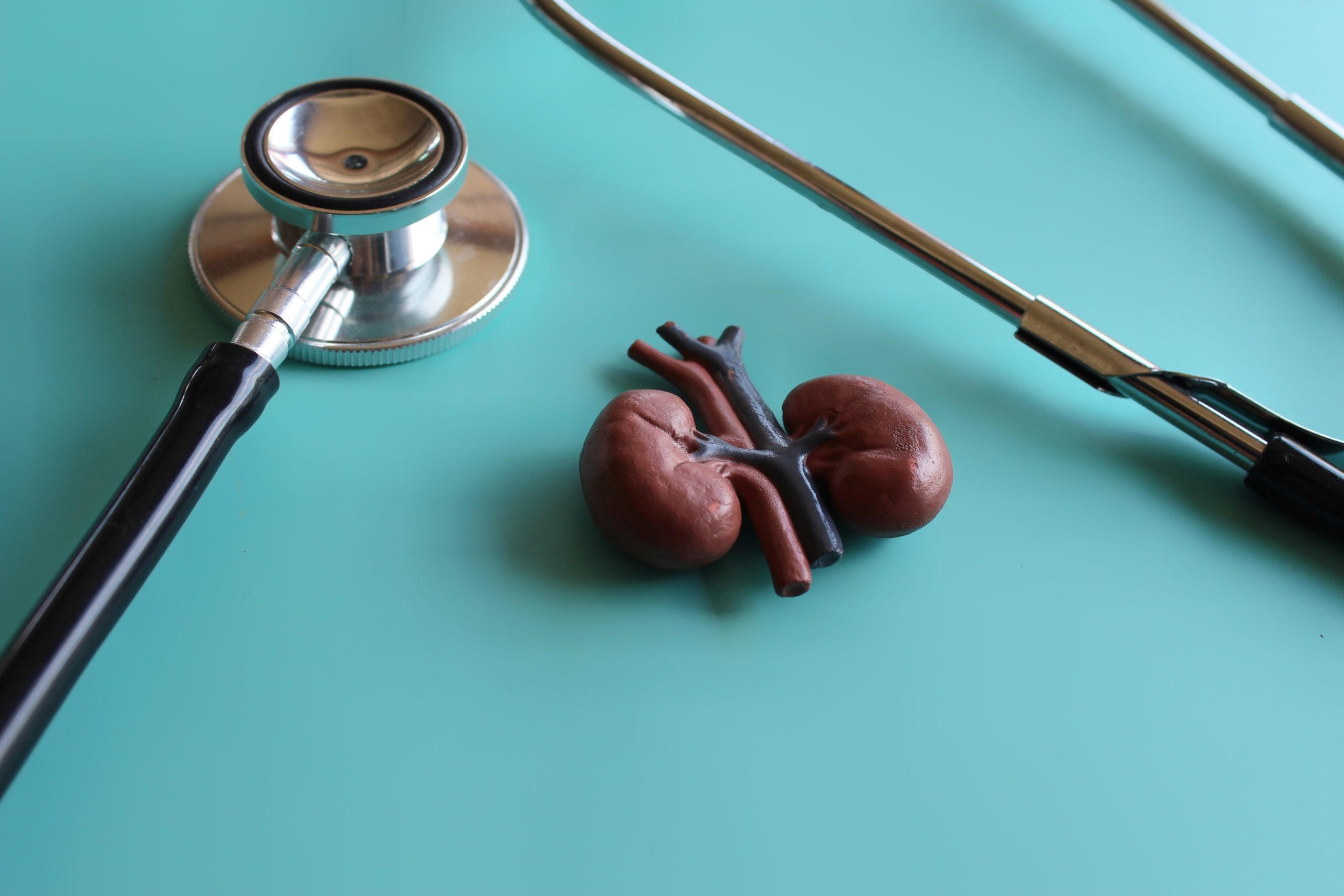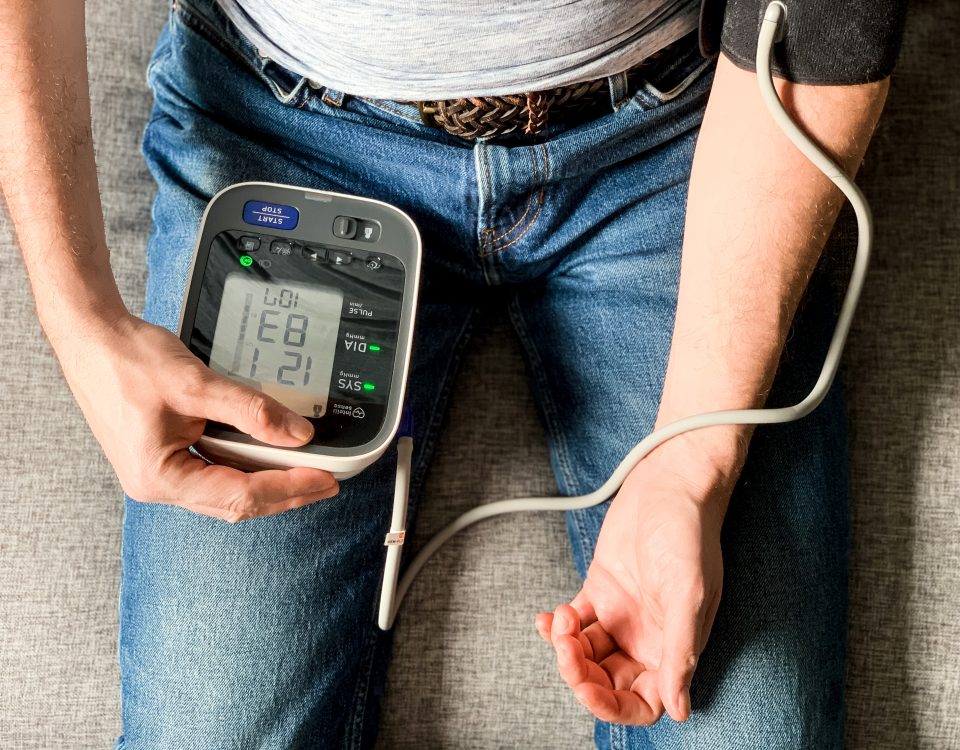Chronic Kidney Disease Symptoms and Prevention Singapore
by: Dr. Paul Chang, General Practitioner, Regis Medical
Last updated: November 28, 2025
This page is for general knowledge. For CKD patients visiting a General Practitioner, it is advised that you let your doctors know about your condition when discussing past medical history. This is to help them give the correct type and dose of medications for you.
Chronic kidney disease affects more than 10% of the global population. The prevalence of chronic kidney disease has increased, along with the prevalence of chronic conditions that can contribute to the development of chronic kidney disease, such as diabetes and high blood pressure. In addition, chronic kidney disease has become one of the leading causes of death worldwide.
Chronic Kidney Disease in Singapore
Based on the United States Renal Data System’s International Comparisons in 2021, more than 300,000 people in Singapore suffer from chronic kidney disease. Singapore also ranks 4th in the world for existing cases of kidney failure. In addition, Singapore ranks 1st in the world for diabetes-induced kidney failure, with 2 out 3 kidney failures being the result of diabetes. This is likely due to Singapore’s high prevalence of diabetes.

Screen for Kidney Disease with Regis Medical Health Screening
Comprehensive, fast result, personalised review session
What is Chronic Kidney Disease?
Chronic kidney disease is also referred to as chronic kidney failure. Damage to the kidneys results in the kidneys gradually losing their function. The disease has varying levels of seriousness. Generally, chronic kidney disease is progressive and irreversible. With chronic kidney disease, your kidneys are unable to remove waste and fluids from your body properly. This can result in the buildup of waste products and fluid in your body. Left untreated, your kidneys may eventually stop working, which is severe and can be life-threatening.
Stages of Chronic Kidney Disease
Chronic Kidney Disease is a progressive chronic disease that worsens as time goes on, if not adequately managed and treated. The progression of the disease can be broken down into 5 stages depending on the damage done to the patient’s kidneys. To assign a stage of chronic kidney disease, your doctor will assess the condition of your kidneys. This is done by assessing your kidneys’ estimated glomerular filtration rate (eGFR), which measures how well your kidneys work. Your eGFR can be obtained via the results of a blood test.
Stage 1 (eGFR 90+)
At this stage of the disease, your kidneys have experienced very mild damage, and are still able to function normally. Symptoms are not apparent at this early stage, making it difficult to detect chronic kidney disease. Patients with stage 1 chronic kidney disease usually discover their condition by chance when conducting regular blood and urine tests.
Stage 2 (eGFR 60-89)
At this stage of the disease, mildly reduced kidney function is experienced as a result of kidney damage. Even at this point, symptoms may not be apparent. The patient may experience some symptoms that are nonspecific, such as fatigue and sleep problems.
Stage 3: Stage 3A (eGFR 45-59), Stage 3B (eGFR 30-44)
At this stage of the disease, the patient experiences moderately reduced kidney function. As a result of kidney damage, the kidneys are unable to properly filter waste, toxins and fluids, leading to a build up of fluids in the body. At this stage, careful management of the condition using medication will need to be implemented. Follow-visits and tests will most likely be necessary to monitor the condition of the patient so that necessary adjustments can be made.
Stage 4 (eGFR 15-29)
At this stage of the disease, the patient has already experienced moderate-to-severe kidney damage, which severely reduces kidney function. At this stage, intervention is necessary to prevent the disease from progressing to kidney failure.
Stage 5 (eGFR below 15 or on dialysis)
This stage can also be referred to as very severe or End Stage Renal Disease. With kidney failure, the build up of waste and toxins within the body becomes life-threatening. Dialysis or a kidney transplant will be necessary. In addition, the disease will lead to an increased risk of heart disease and stroke.
Causes of Chronic Kidney Disease
A disease or condition can damage your kidney, causing kidney function to be impaired. This results in chronic kidney disease. The damage to your kidney can worsen progressively.
Common causes of chronic kidney disease include:
- Type 1 or type 2 diabetes
- High blood pressure
- Inherited kidney diseases such as polycystic kidney disease
- Obstruction of the urinary tract over an extended period of time
- Vesicoureteral reflux, which causes urine to go back up into the kidneys
- Recurrent kidney infections
- Glomerulonephritis, an inflammation of the filtering units in the kidney
- Interstitial nephritis, an inflammation of the tubules and surrounding structures of the kidneys
Symptoms of Chronic Kidney Disease
Symptoms of chronic kidney disease may take time to develop, especially in the early stages. For some cases, symptoms may not even show until their kidney disease has advanced. Common symptoms of chronic kidney disease include:
- Feeling fatigued
- Difficulty concentrating
- Difficulty sleeping at night
- Muscle cramps
- Swelling in the feet and ankles
- Dry, itchy skin
- Need to urinate more frequently, especially at night
Risk Factors for Chronic Kidney Disease
Risk factors for chronic kidney disease include:
- Diabetes
- High blood pressure
- Family history of kidney disease/failure
- Age
- On medication that can damage the kidneys
- Smoking
- Regular, heavy consumption of alcohol
Complications of Chronic Kidney Disease
Chronic kidney disease can lead to many complications that affect all parts of your body. Possible complications of chronic kidney disease include:
- Build up of fluid in the body, causing swelling in the arms and legs, high blood pressure or fluid in your lungs, a sudden spike in potassium levels in your blood, that can be life-threatening if it impairs your heart’s function.
- Anaemia
- Heart Disease
- Weakening of your bones
- Reduced sex drive
- Damage to your nervous system
- Impairment to your immune response
- Pregnancy complications for the mother and developing foetus
- Irreversible damage to your kidneys
Diagnosing Chronic Kidney Disease
To accurately diagnose if you have chronic kidney disease, your doctor will need to know your medical and family history. Knowing whether you have related conditions such as high blood pressure, or whether you have family members with kidney disease will help your doctor assess your risk of chronic kidney disease. In addition, various tests may be required to confirm the diagnosis as well as severity of your condition. This may include:
- Kidney Renal Function Blood Test
- Blood tests are usually the main way to test for kidney disease. Using a blood sample, your glomerular filtration rate (GFR) can be calculated to whether your kidneys are working normally. Your GFR is dependent on factors including:
- Age
- Blood creatine measurement
- Ethnicity
- Gender
- Height
- Weight
- In addition, your blood may be tested for abnormal levels of substances such as:
- Blood urea level
- Blood creatinine level
- Other substances, e.g., potassium
- Urine tests
- A sample of your urine will be collected to check for abnormalities that may suggest kidney disease such as:
- The presence of blood
- The presence of protein or proteinuria
- Cellular debris
Abnormally high levels of such substances would suggest kidney failure.
These two tests can be used together to assess the condition of your kidneys. In addition, other tests may be prescribed if required, to accurately assess how damaged your kidneys are.
This can include:
- Ultrasound scan
- Magnetic resonance imaging (MRI) scan
- Computerised tomography (CT) scan
- Kidney biopsy
Preventing Chronic Kidney Disease
As with any chronic disease, there is no cure for chronic kidney disease and the damage to your kidneys is often irreversible and will only progressively worse if left uncontrolled. Prevention is better than cure. While chronic kidney disease can sometimes be unavoidable, there are steps that you can take to reduce your risk of developing the disease.
Keep underlying health conditions in check
Certain chronic conditions such as diabetes and high blood pressure can cause kidney damage if not monitored and managed properly. If uncontrolled the damage done to your kidneys can become severe, causing chronic kidney disease. If you have been diagnosed with a chronic condition, it is important for you to attend regular appointments, follow any medical advice and prescriptions given by your doctor.
Quit smoking
Regular smoking has been proven to increase your risk of developing cardiovascular diseases such as heart disease or strokes. These diseases have been linked to a greater risk of chronic kidney disease. You can improve your general health and lower risks of developing diseases significantly by quitting smoking.
Adopting a healthy diet
To prevent chronic kidney disease, it is important to keep your blood pressure and cholesterol levels within a healthy range. To do this, you should adopt a healthy and balanced diet.
A balanced and kidney-friendly diet should include:
- Foods that contain less salt and sodium. Instead of using salt to season your food, consider using a mix of spices. Low, reduced or no salt options should be considered when making food purchases.
- A good amount of fruits and vegetables. Fruits and vegetables, in general, are good sources of vitamins and minerals. In addition, they contain dietary fibre, which can improve your guy health, preventing constipation and other digestive problems.
- Choose foods that are lower in fat. Foods high in trans fats and saturated fats should be avoided as much as possible. If possible, choose leaner cuts of meat. Low-fat or fat-free milk or other dairy foods would be ideal.
- Foods and drinks high in sugar content should be avoided if possible.
Manage your alcohol intake
Excessive consumption of alcohol can result in increased levels of blood pressure and cholesterol, which can lead to kidney damage if left uncontrolled over an extended period of time. It is advised that you drink in moderation. The recommended daily alcohol intake is 2 standard drinks and 1 standard drink for men and women respectively. A standard alcoholic drink would refer to a can of beer (330ml), half a glass of wine (175ml) or a shot of spirit (35ml).
Regular exercise
Exercising regularly can help to keep your blood pressure in control. This will reduce your risk of developing kidney disease. It is recommended that you carry out at least 150 minutes of moderate-intensity aerobic activity a week. Even simple exercises such as brisk walking can improve your health significantly.
Treatment Methods for Chronic Kidney Disease
As with most chronic diseases, chronic kidney disease cannot be cured. However, the disease can be managed and treated to relieve symptoms, reduce complications and slow the disease’s progression. For patients with severely damaged kidneys, they will require treatment for end-stage kidney disease.
Treating the causes of kidney damage
Medication can be prescribed to treat the underlying causes of chronic kidney disease. Conditions that lead to kidney damage need to be controlled and treated to prevent further damage to the kidneys. For example, patients with hypertension will require medication for high blood pressure while diabetic patients will need to keep their blood sugar under control to prevent kidney damage.
Treating the complications of kidney damage
Chronic kidney disease can lead to various health complications that can affect your quality of life. Some of these complications will require treatment to keep them under control or to prevent serious, life-threatening medical emergencies.
Managing potassium levels
Chronic kidney disease can cause potassium levels in your blood to reach abnormal levels due to your kidneys’ inability to function normally. This condition is referred to as hyperkalaemia and can lead to arrhythmia that can lead to a potential heart attack. Patients with this condition will need to avoid potassium supplements as well as medication that can lead to higher potassium levels in the body such as certain high blood pressure medication.
Managing water retention to reduce swelling
Chronic kidney disease can cause swelling in your ankles, feet, and hands due to reduced kidney function and effectiveness in removing fluid in your blood. To reduce swelling, you will need to reduce your salt and fluid intake, including fluids in food. Diuretics may be prescribed if deemed necessary. These will help you remove water from your body via urinating which helps to relieve the swelling in your limbs.
Anaemia
Patients with chronic kidney disease in the advanced stages may develop anaemia, which is a lack of red blood cells. To treat anaemia, you may be prescribed injections of erythropoietin, a medication that helps with the production of red blood cells. Iron supplements may also be suggested if you have an iron deficiency.
Weakened bones
Severe damage to your kidneys can lead to a build-up of phosphate in your body, which can affect the balance of calcium within your body, causing the thinning of your bones. For patients with this condition, they will be asked to control their consumption of foods high in phosphate, such as red meat, dairy products, eggs and fish. If necessary, phosphate binders may be prescribed. For patients who experience vitamin D deficiency, supplements such as cholecalciferol or ergocalciferol may be prescribed to help increase your vitamin D levels, which is crucial for bone health.
Glomerulonephritis
Glomerulonephritis refers to a condition in which the filters inside the kidneys are inflamed. This could be caused by a malfunctioning immune system attacking the kidneys. Medication to reduce the activity of your immune system, such as a steroid or cyclophosphamide may be prescribed.
Treatment for end-stage chronic kidney disease
At this stage of chronic kidney disease, patients will experience complete or near-complete kidney failure and will require dialysis or a kidney transplant.
Dialysis
Dialysis, in short, is a treatment that removes waste and fluid from your body since your kidneys are no longer able to do so on their own. There are two main types of dialysis:
- Haemodialysis, which works by filtering waste and excess fluids from your blood
- Peritoneal dialysis, which involves a dialysis solution that absorbs waste and excess fluids from your body. This solution enters your body via the use of a thin tube, which is inserted into your abdomen. The solution is later drained from your body, along with the waste and excess fluids absorbed.
Kidney transplant
Your damaged kidneys may be replaced with a healthy kidney from a donor. This is done via surgery. After the transplant you will be put on long term immunosuppressive medication to prevent your body from rejecting the new organ.
Screen for Kidney Disease with Regis Medical Health Screening
Comprehensive, fast result, personalised review session
Disclaimer:
The information on this website, including but not limited to, text, graphics, images, videos and all other materials contained on this website is for informational purposes only. None of the material is meant to replace a certified and registered Doctor's professional medical advice, diagnosis, and treatment.
No warranties or representations are given in respect of the medical information. Regis Medical, Regis Medical’s staff, and the website's operator will not be held liable if a user suffers any injury or loss after relying upon the medical information on this website.
Any devices used for technology-enhanced therapies are intended for use only for general well-being purposes or to encourage or maintain a healthy lifestyle and is not intended to be used for any medical purpose (such as the detection. diagnosis, monitoring, management or treatment of any medical condition or disease). Any health-related information provided by this device or software should not be treated as medical advice. Please consult a certified and registered Doctor for any medical advice required.
“Chronic Kidney Disease (CKD).” Chronic Kidney Disease (CKD) - Symptoms, Causes, Treatment, National Kidney Foundation, 10 Oct. 2022, https://www.kidney.org/atoz/content/about-chronic-kidney-disease.
“Chronic Kidney Disease (CKD).” Chronic Kidney Disease (CKD) - The National Kidney Foundation, The National Kidney Foundation NKF Singapore, https://nkfs.org/kidney-failure/chronic-kidney-disease-ckd/.
“Chronic Kidney Disease Basics.” Chronic Kidney Disease Basics | Chronic Kidney Disease Initiative, Centers for Disease Control and Prevention, 28 Feb. 2022, https://www.cdc.gov/kidneydisease/basics.html.
Chronic Kidney Disease, SingHealth, https://www.singhealth.com.sg/patient-care/conditions-treatments/chronic-kidney-disease.
“Chronic Kidney Disease.” Chronic Kidney Disease - Diagnosis and Treatment, Mayo Foundation for Medical Education and Research, 3 Sept. 2021, https://www.mayoclinic.org/diseases-conditions/chronic-kidney-disease/diagnosis-treatment/drc-20354527.
“Chronic Kidney Disease.” Chronic Kidney Disease - HealthHub, HealthHub, 3 Nov. 2021, https://www.healthhub.sg/a-z/diseases-and-conditions/334/chronic_kidney_disease_nuh.
“Chronic Kidney Disease.” Chronic Kidney Disease - Symptoms and Causes, Mayo Foundation for Medical Education and Research, 3 Sept. 2021, https://www.mayoclinic.org/diseases-conditions/chronic-kidney-disease/symptoms-causes/syc-20354521.
“Drink Alcohol in Moderation.” Drink Alcohol in Moderation - SingHealth, SingHealth, 17 Dec. 2018, https://www.singhealth.com.sg/news/patient-care/drink-alcohol-in-moderation#:~:text=The%20Health%20Promotion%20Board%20recommends,shot%20(35ml)%20of%20spirit.
“Eating Right for Chronic Kidney Disease.” Eating Right for Chronic Kidney Disease | NIDDK, National Institute of Diabetes and Digestive and Kidney Diseases, Oct. 2016, https://www.niddk.nih.gov/health-information/kidney-disease/chronic-kidney-disease-ckd/eating-nutrition.
“Global Facts: About Kidney Disease.” Global Facts: About Kidney Disease | National Kidney Foundation, National Kidney Foundation, 11 Mar. 2015, https://www.kidney.org/kidneydisease/global-facts-about-kidney-disease.
“Key Statistics.” Key Statistics - The National Kidney Foundation (NKF), The National Kidney Foundation NKF Singapore, https://nkfs.org/about-us/key-statistics/.
Khatri, Minesh. “Kidney Disease.” Kidney Disease (Chronic & Acute) - Causes, Risk Factors, Stages, WebMD, 31 Aug. 2022, https://www.webmd.com/a-to-z-guides/understanding-kidney-disease-basic-information.
Kovesdy, Csaba P. “Epidemiology of chronic kidney disease: an update 2022.” Kidney international supplements vol. 12,1 (2022): 7-11. doi:10.1016/j.kisu.2021.11.003
“Overview.” Chronic Kidney Disease - NHS, NHS Choices, 29 Aug. 2019, https://www.nhs.uk/conditions/kidney-disease/.
Pietrangelo, Ann. “Stages of Chronic Kidney Disease.” Chronic Kidney Disease (CKD) Stages: Symptoms & Treatment, Healthline Media, 11 Feb. 2020, https://www.healthline.com/health/ckd-stages.
“Preventing Chronic Kidney Disease.” Preventing Chronic Kidney | NIDDK, National Institute of Diabetes and Digestive and Kidney Diseases, Oct. 2016, https://www.niddk.nih.gov/health-information/kidney-disease/chronic-kidney-disease-ckd/prevention.
“Prevention.” Chronic Kidney Disease - Prevention - NHS, NHS Choices, 29 Aug. 2019, https://www.nhs.uk/conditions/kidney-disease/prevention/.
“Treatment.” Chronic Kidney Disease - Treatment - NHS, NHS Choices, 29 Aug. 2019, https://www.nhs.uk/conditions/kidney-disease/treatment/.
Wang, Yunlai et al. “Traditional Chinese Medicine in the Treatment of Chronic Kidney Diseases: Theories, Applications, and Mechanisms.” Frontiers in pharmacology vol. 13 917975. 18 Jul. 2022, doi:10.3389/fphar.2022.917975
Xiong, Wei et al. “Acupuncture Application in Chronic Kidney Disease and its Potential Mechanisms.” The American journal of Chinese medicine vol. 46,6 (2018): 1169-1185. doi:10.1142/S0192415X18500611


